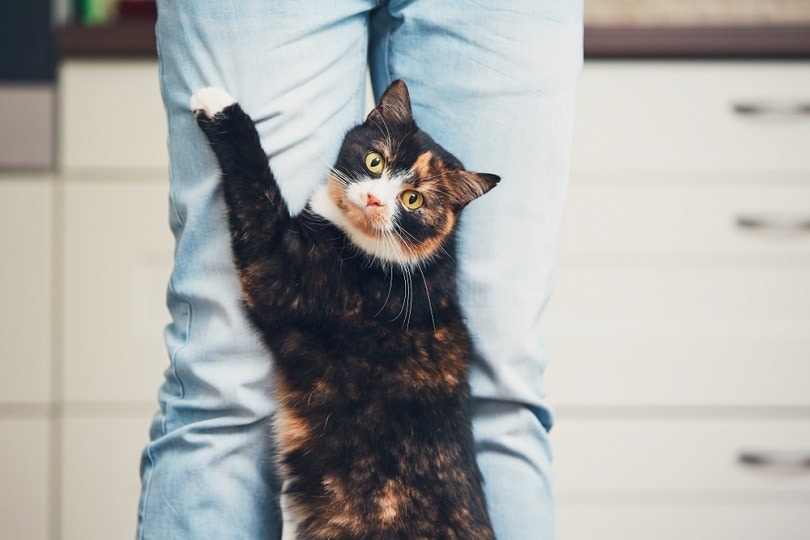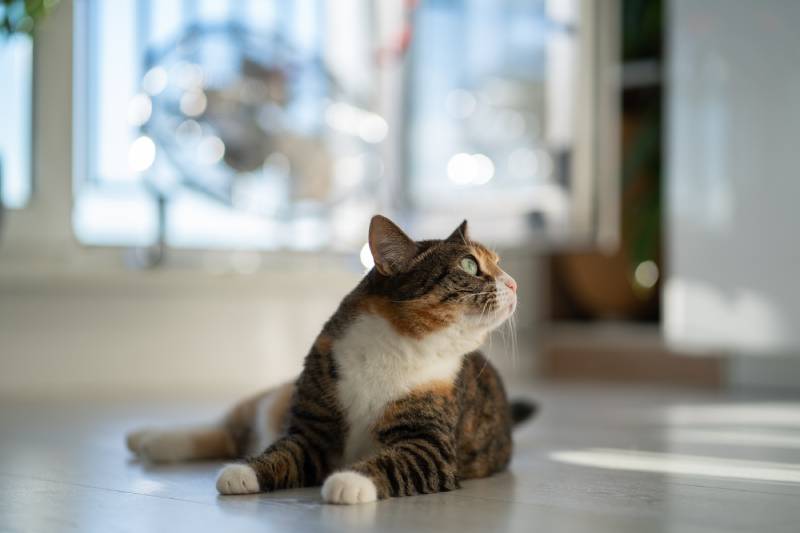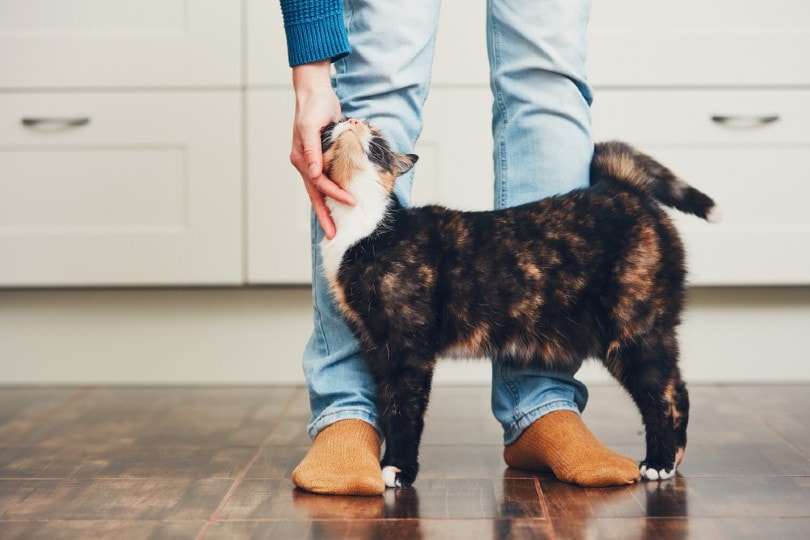VET APPROVED

The information is current and up-to-date in accordance with the latest veterinarian research.
Learn more »Cats are often depicted as picky creatures who only prefer human companionship on their own terms. Of course, every cat owner knows this isn’t an accurate portrayal of every cat, and some can be just as amiable as dogs. You know your cat better than anyone else, and you might notice that they’re suddenly acting much friendlier than their usual self, whatever that looks like. A clingy cat may follow you everywhere, meowing loudly at times and bowling over books or anything in between them and you. If your cat suddenly seems much more affectionate than normal, you should try to investigate the cause because they might be trying to let you know something’s wrong.

The 7 Reasons Why Your Cat Suddenly Follows You Around
Meowing excessively, acting frightened when you leave the room, or refusing to eat unless you’re home are all signs that your cat is becoming clingy to an unhealthy level. While there are many reasons they might be doing this, most times they’re acting out of anxiety. Here are some of the things that might be fueling their fear.
1. Feeling Abandoned
If you’re gone for most hours of the day your cat might become upset, especially if this wasn’t always a normal routine. Changes in school or work schedules might stress out your cat because they thrive on consistency. Rescue felines might be particularly predisposed to separation anxiety if they have a history of abandonment.
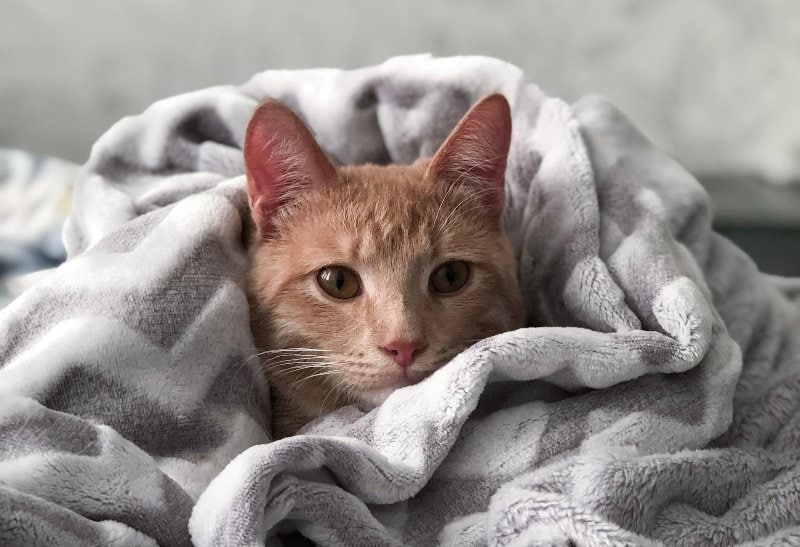
2. Orphaned or Separated from Their Litter Too Early
Cats need to be fully weaned at a minimum of 6-8 weeks before they can be healthily separated from their litter. It’s best to let their mother nurture them physically and emotionally for as long as possible before they go to their new pet parents. Cats who weren’t allowed to fully wean at a healthy age may develop separation anxiety as they seek the maternal influence that they missed. However, some kittens who were born on the streets may have suffered premature weaning due to the death or capture of their mother.
3. Boredom
Like a toddler, your cat might follow you around your house because they want to be around you and they don’t know how to play by themselves. Foster their independent play skills by investing in a cat tree, cat scratcher or other toy that’ll tantalize their interest. Letting them engage in their surroundings will distract them from obsessing over you.
A cat scratcher, like the Hepper Hi-Lo Cat Scratcher, offers daily entertainment for your furry friend. This durable cardboard scratcher not only looks stylish but is also adjustable to three positions – high, low, and lower – ensuring your cat stays engaged and amused, helping to prevent them from getting into trouble or scratching things they shouldn't.
- Premium Materials - Hepper's cardboard scratcher is made with dense, B-flute cardboard, and a metal...
- High, Low and Lower - A single cat scratch pad won't keep your cat engaged. 3 unique positions keeps...
- Activates Muscles - The Hi Lo isn't just a cat nail file to stop the chief cat couch scratcher. The...
At PangoVet, we've admired Hepper for many years, and decided to take a controlling ownership interest so that we could benefit from the outstanding designs of this cool cat company!
4. Sickness
Unfortunately, clinginess could be a symptom of sickness, especially if it’s accompanied by frequent meowing, anxiety, stomach upset, or other general signs of feeling unwell. You should inspect your cat for any sign of outward trauma, including injury to their paws. If you can’t find a reason for their sudden change in behavior, you should always contact a vet to make sure nothing’s wrong.
5. Hunger
Maybe you got a little carried away with your to-do list and forgot your kitty’s meal. Like a dog who knows when it’s time to walk, cats don’t let you forget when it’s time to eat. They know you feed them, so they might act super affectionate around mealtimes and not let you out of their sight until they see the food appear.
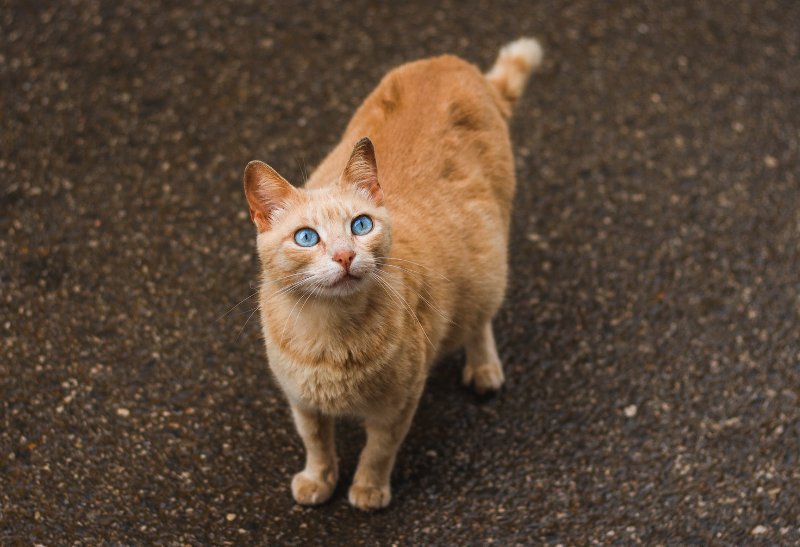
6. Pregnancy or Heat
Hormone changes can make a cat feel extra snuggly. If your cat is pregnant, they could be displaying some of their new maternal feelings by rubbing against your leg or asking for extra attention. Heat cycles could also change the way your cat behaves but in a bit more unpredictable way. Some cats might not want to be around you as they seek a mate, but others may want your company more than ever. Frequent meowing or yowling is another sign your female cat is in heat, as well as rubbing against furniture or rolling on the floor.
7. Anxious Over Change
Cats like consistency. A new animal in the house, a new home, or even rearranging the furniture may be enough for some cats to go off the rails. Some more temporal events such as a thunderstorm or an unfamiliar house guest might also upset your cat, making them refuse to leave you, or hide if you can’t be present.
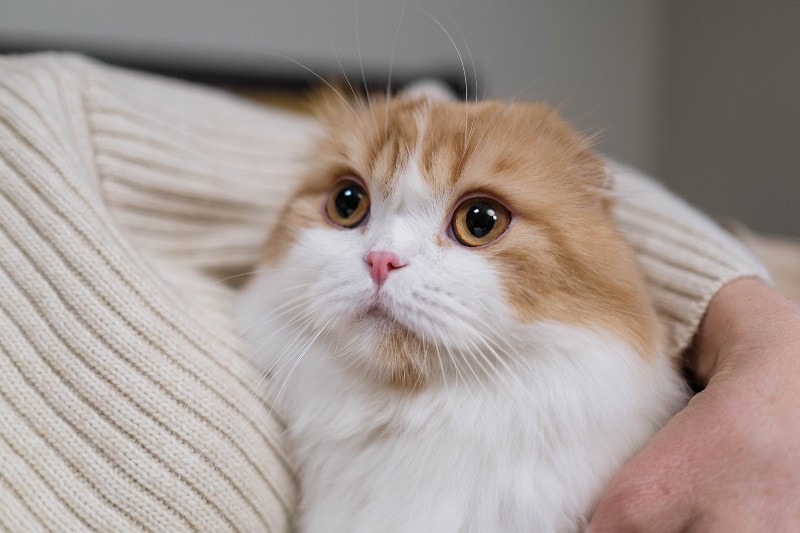

What to Do If Your Cat Is Being Clingy
It’s important to understand any sudden behavioral changes in your cat because it might be the sign of illness or something seriously wrong. Your cat trusts you, so it’s trying to tell you that it feels uncomfortable and is relying on you to fix the problem, whatever that may be.
Here are four things you should do if you notice your cat being clingy:
- Schedule a consultation with a vet. If you can’t find a reason for your cat’s dilemma, you should take them to the vet to rule out any underlying illness.
- Make sure their needs for food and love are satisfied. If you have a feeding time or set routine with them, please don’t try to change it frequently as that can give your cat chronic anxiety. You want them to trust that you’ll always be there, providing your love and their next meal. Your cat will have significantly less anxiety if they know all of their needs are met.
- Introduce new pets as slowly as possible. Your house belongs to your cat, despite what the title says. They might not know what to think about the intruder, and they’ll likely act fearful or even aggressive if you rush the meeting. Letting your cat bond with new family members over time allows them to form attachments on their own terms, which will probably result in much more stable relationships in the long run.
- Give them stability. If your household is undergoing a lot of change, take time to reassure your cat that you’re not going anywhere. By spending extra time with them and cuddling them, you can make them feel safe.

Conclusion
While you hope that your cat acts affectionately towards you, a sudden shift in your cat’s behavior probably isn’t a good thing. You should try to investigate why your cat is being clingy so that you can properly tend to its needs, building a relationship of trust with them so that they don’t feel anxious or afraid.
See Also:
- Why Is My Cat Extra Clingy When I’m Pregnant? 5 Interesting Reasons
- Why Is My Cat Extra Clingy When I’m Pregnant?
Featured Image Credit: Jaromir Chalabala, Shutterstock
